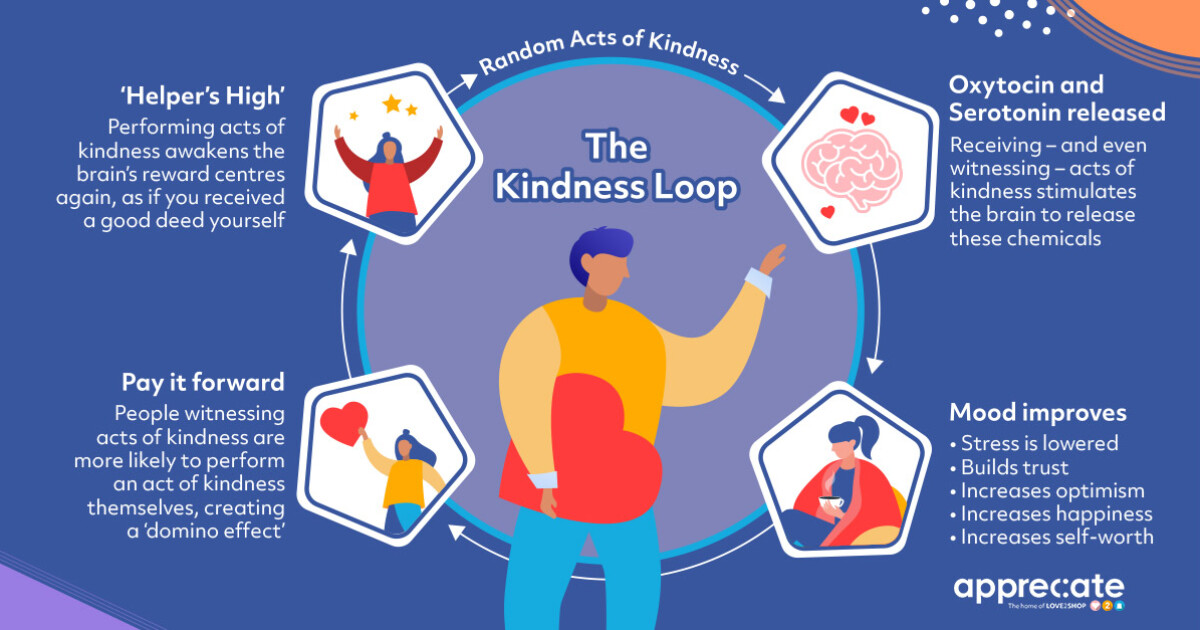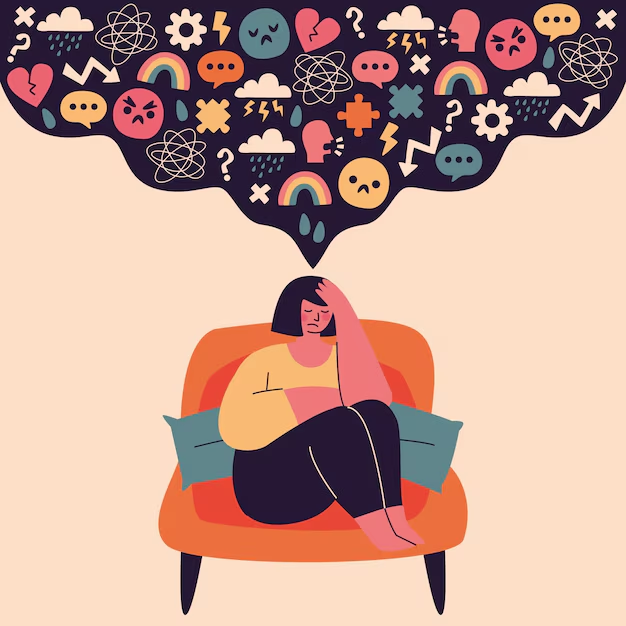Introduction
Gifting is a universal tradition that transcends cultural and societal boundaries. Whether for birthdays, holidays, anniversaries, or other milestones, giving gifts is a fundamental human practice that reflects thoughtfulness, appreciation, and connection. But why do we give gifts, and what psychological mechanisms drive this behavior?

Understanding the psychology behind gifting can help us make more meaningful choices when selecting presents.
Read More- Psychology of Donating
The Psychology Behind Gift-Giving
The psychology of gift-giving can be understood through the following phenomenas-
1. Strengthening Social Bonds
Gift-giving is an essential aspect of social relationships. According to Sherry (1983), gifts act as symbols of social connection, strengthening relationships by expressing love, gratitude, or obligation. They serve as tangible representations of emotions that might otherwise be difficult to express verbally.
In personal relationships, gifts function as tokens of appreciation, reinforcing emotional ties. Studies suggest that people who exchange gifts frequently experience deeper emotional connections with their loved ones, as the act of giving fosters a sense of closeness and mutual understanding (Dunn, Aknin, & Norton, 2008).
2. Psychological Benefits for the Giver
While gift-giving is often perceived as an altruistic act, research shows that it benefits the giver as much as the recipient. According to neuroscientific studies, giving activates the brain’s mesolimbic reward system, which releases dopamine—a neurotransmitter associated with pleasure and happiness (Harbaugh, Mayr, & Burghart, 2007).
This phenomenon, known as the “helper’s high,” explains why people often feel joy when giving gifts. The psychological rewards of generosity can lead to increased well-being, reduced stress, and even a longer lifespan, as prosocial behavior has been linked to improved mental and physical health (Post, 2005).

3. The Role of Personalization
Personalized gifts have a stronger psychological impact compared to generic ones. Research by Belk & Coon (1993) found that recipients attach greater sentimental value to gifts that reflect effort, thoughtfulness, and personal relevance. This means that a customized or carefully chosen gift can foster stronger emotional responses than an expensive but impersonal one.
For example, a book signed with a heartfelt note or a piece of jewelry engraved with initials can create lasting emotional significance. Such gifts show the recipient that the giver truly understands their personality, preferences, and aspirations.
4. Cultural and Social Influences
Gift-giving norms vary across cultures. In collectivist societies, such as Japan or China, gifts often serve to maintain social harmony and reinforce hierarchy. In these cultures, gifts are carefully chosen based on the recipient’s social status and the nature of the relationship (Joy, 2001). On the other hand, in individualistic societies like the U.S. or Western Europe, gifts are often seen as personal expressions of thoughtfulness rather than societal obligations.
Additionally, cultural superstitions influence gift selection. For instance, in China, giving a clock as a gift is avoided because it symbolizes bad luck, while in Western cultures, gifting sharp objects like knives is thought to “cut” a relationship. Understanding these cultural nuances can help avoid unintended negative connotations when choosing gifts.

Gift Ideas for Men and Women
Selecting the perfect gift involves understanding the recipient’s personality, interests, and needs. Below are some curated gift ideas based on psychological principles of appreciation and emotional significance.
Gift Ideas for Men
Here are some gifts that can be given to men-
- Personalized Leather Accessories – A customized wallet, belt, or keychain reflects both practicality and personal touch.
- High-Quality Headphones – Music and podcast enthusiasts will appreciate high-fidelity sound experiences.
- Fitness Gadgets – A smartwatch or fitness tracker appeals to health-conscious individuals and motivates them to maintain an active lifestyle.
- Subscription Services – Monthly deliveries of coffee, whiskey, or grooming products provide continuous enjoyment and excitement.
- Experience-Based Gifts – Concert tickets, sports events, or adventure experiences create lasting memories and emotional connections.
Gift Ideas for Women
Here are some gifts that can be given to women-
- Personalized Jewelry – Necklaces or bracelets with initials, birthstones, or custom engravings add sentimental value.
- Luxury Skincare or Spa Packages – Enhancing self-care routines can be a deeply appreciated gift.
- Book Subscriptions – Monthly book deliveries tailored to her favorite genres show thoughtfulness.
- Customized Scented Candles – Aromatherapy candles provide relaxation and ambiance, enhancing well-being.
- Creative Workshops – Pottery, painting, or cooking classes cater to artistic personalities and create memorable experiences.
Universal Gift Ideas (for Anyone)
Here are some gifts that can be given to anyone-
- Customized Photo Books – A collection of shared memories printed in a book format adds a heartfelt touch.
- Long-Distance Friendship Lamps – These innovative lamps light up in sync, allowing loved ones to stay connected across distances.
- High-Quality Gourmet Snacks – Curated snack boxes cater to food lovers and those who enjoy culinary delights.
- Donation in Their Name – Charitable donations aligned with the recipient’s values can create a sense of fulfillment.
- Experience Vouchers – Travel, adventure activities, or special dinner reservations offer exciting and memorable moments.
Conclusion
Gift-giving is much more than a simple exchange of material items—it is a deeply ingrained social and psychological practice that fosters relationships, enhances emotional well-being, and strengthens bonds between individuals. Thoughtful and personalized gifts demonstrate care, appreciation, and understanding, making the act of giving more meaningful for both parties.
The best gifts are those that reflect the recipient’s personality, interests, and values. Whether through experiential gifts, personalized items, or meaningful gestures, a well-chosen gift can leave a lasting impression and create cherished memories.
References
Belk, R. W., & Coon, G. S. (1993). Gift Giving as Agapic Love: An Alternative to the Exchange Paradigm Based on Dating Experiences. Journal of Consumer Research, 20(3), 393-417. https://doi.org/10.1086/209357
Dunn, E. W., Aknin, L. B., & Norton, M. I. (2008). Spending Money on Others Promotes Happiness. Science, 319(5870), 1687-1688. https://doi.org/10.1126/science.1150952
Harbaugh, W. T., Mayr, U., & Burghart, D. R. (2007). Neural Responses to Taxation and Voluntary Giving Reveal Motives for Charitable Donations. Science, 316(5831), 1622-1625. https://doi.org/10.1126/science.1140738
Joy, A. (2001). Gift Giving in Hong Kong and the Continuum of Social Ties. Journal of Consumer Research, 28(2), 239-256. https://doi.org/10.1086/322902
Post, S. G. (2005). Altruism, Happiness, and Health: It’s Good to Be Good. International Journal of Behavioral Medicine, 12(2), 66-77. https://doi.org/10.1207/s15327558ijbm1202_4
Sherry, J. F. (1983). Gift Giving in Anthropological Perspective. Journal of Consumer Research, 10(2), 157-168. https://doi.org/10.1086/208956
Subscribe to PsychUniverse
Get the latest updates and insights.
Join 3,045 other subscribers!
Niwlikar, B. A. (2025, February 9). The Joy of Gifting and 5 Interesting Gifting Ideas. PsychUniverse. https://psychuniverse.com/psychology-of-gifting/



